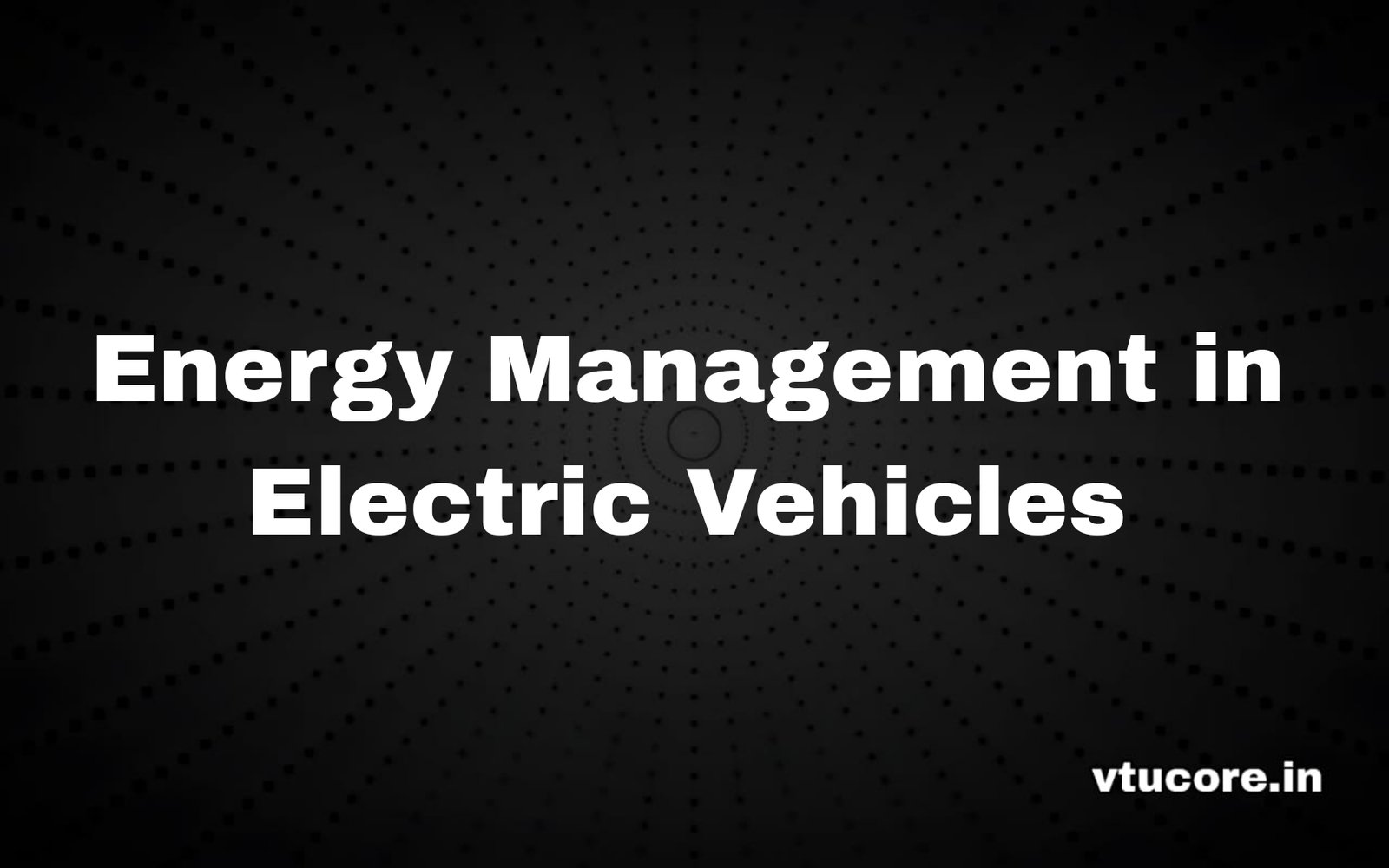Energy Management in Electric Vehicles BEE657A
Course Code: BEE657A
Credits: 01
CIE Marks: 50
SEE Marks: 50
Total Marks: 100
Exam Hours: 01
Total Hours of Pedagogy: 15H
Teaching Hours/Weeks: [L:T:P:S] 1:0:0:0
Introduction to Electric Vehicles and Energy Management Overview of electric vehicles (EVs) – Types of EVs (Battery Electric Vehicles, Plug-in Hybrid Electric Vehicles); Advantages and challenges of EVs. Introduction to energy management in EVs – Importance of energy management; Key objectives of energy management in EVs. Electric vehicle components and systems- Battery systems; Power electronics and motor drive systems; Regenerative braking systems; Energy storage and management systems.
Fundamentals of Energy Management Energy storage technologies for EVs – Lithium-ion batteries; Solid-state batteries; Supercapacitors; Fuel cells. Battery charging and discharging techniques – Charging infrastructure for EVs; Charging modes (AC and DC charging); Fast charging vs. slow charging; Battery management systems (BMS). Energy efficiency and energy loss analysis – Losses in power electronics and motor drive systems; Losses in battery systems; Factors affecting energy efficiency in EVs.
Advanced Energy Management Strategies State-of-charge (SoC) estimation and management – SoC estimation techniques (Coulomb counting, Kalman filtering, etc.); SoC balancing techniques; Impact of SoC on battery life and performance. Power management strategies – Optimal power allocation between different vehicle systems; Dynamic power allocation based on driving conditions; Power flow control in EVs. Regenerative braking and energy recovery – Principles of regenerative braking; Control strategies for regenerative braking; Energy recovery and utilization.
Optimization Techniques for Energy Management Optimization models for energy management – Linear programming and nonlinear optimization; Model predictive control (MPC) for energy management; Genetic algorithms and other heuristic optimization techniques. Intelligent energy management systems – Artificial intelligence (AI) and machine learning techniques for energy management; Reinforcement learning-based energy management; Datadriven approaches for energy optimization. Realtime energy management algorithms – Real-time optimization algorithms for energy allocation; Adaptive control strategies for energy management; Integration of energy management with navigation systems.
Case Studies and Applications Energy management in electric buses and fleet management – Challenges and strategies for energy management in public transportation; Fleet management and scheduling optimization. Energy management in electric vehicles charging infrastructure – Smart charging stations and grid integration; Demand-side management and load balancing. Emerging trends and future directions in energy management – Wireless charging technologies; Vehicle-to-vehicle (V2V) communication for energy optimization; Advanced energy storage and conversion technologies.

